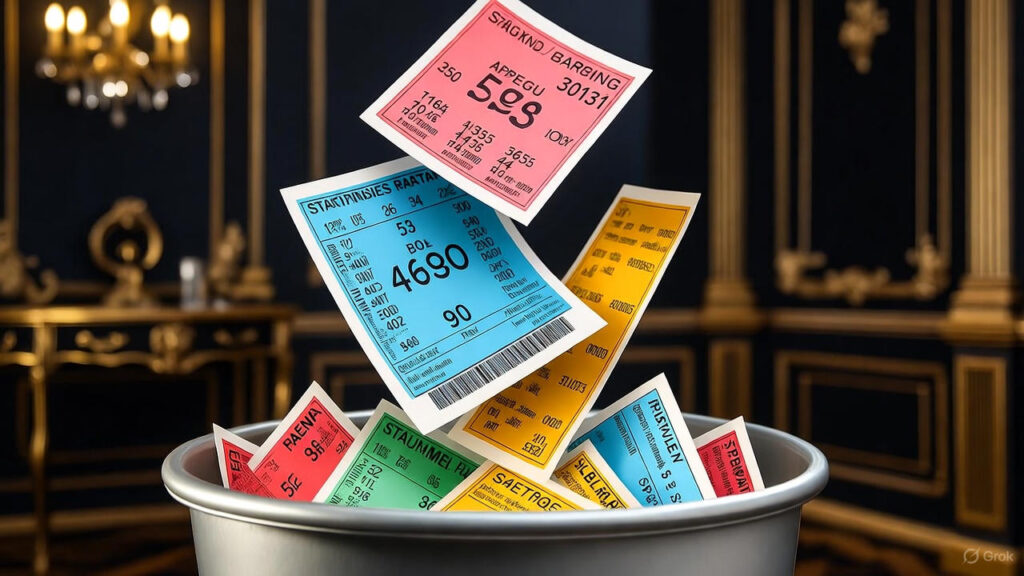10 Things Millionaires Do Not Spend Money On

Let me tell you something that might surprise you: becoming a millionaire isn’t just about earning bucketloads of cash. It’s about being smart enough to keep it. 🙂
I’ve spent years analysing wealth-building patterns, and honestly? The most eye-opening discovery wasn’t what rich people buy, it was what they don’t buy. These spending habits separate people who build lasting wealth from those who just look wealthy for a hot minute before reality hits.
Look, I get it. When you’re earning decent money, there’s this temptation to loosen the purse strings. But here’s the truth bomb: millionaires become millionaires (and stay that way) because they’ve mastered the art of strategic spending. They’ve figured out the difference between investments and money pits.
Throughout my career in financial management, I’ve worked with clients across different wealth brackets. The pattern is Crystal clear. People with seven-figure net worths share eerily similar spending avoidance strategies.
Also, they’re not all penny-pinching misers living in their mom’s basement. They just know where their money belongs, and where it definitely doesn’t. Ready to peek behind the curtain? Let’s talk about what millionaires refuse to waste their money on.
What Are The Things Rich People Don’t Spend Money On?
Here’s where things get interesting. Wealthy individuals actively avoid impulse purchases and extended warranties like they’re dodging a telemarketer’s call. This isn’t accidental; it’s a calculated financial strategy.
Think about it: when was the last time you grabbed something at the checkout counter you didn’t plan to buy? That candy bar, that magazine, those batteries you “might need someday”? Yeah, millionaires skip all that noise. They walk into stores with a plan and stick to it like their financial future depends on it (because it does).
Extended warranties are another trap most rich folks sidestep. That extra protection plan the salesperson swears you need? They’re passing. Why? Because they’ve done the math, and spoiler alert: those warranties rarely pay off.
The store keeps more than half of what they charge for these plans, according to consumer research. It’s basically free money for retailers.
Why Do Rich People Choose Not To Spend Money On Some Things?
Ever wonder what drives these spending decisions? It’s not about being cheap or showing off their financial discipline. It runs deeper than that.
To Avoid Debt
Debt is the silent wealth killer. Right now, millions of American households are drowning in credit card debt, struggling with mortgages, or watching student loans pile up faster than they can shovel them away. Your spending habits directly impact your ability to escape this debt trap.
When you’re serious about paying off debt, you can’t afford to miss monthly payments. Better yet, you should be making extra payments whenever possible. But guess what makes that impossible? Reckless spending.
I’ve seen clients earning six figures who couldn’t make progress on their debt because they couldn’t stop spending. Meanwhile, others earning half as much were crushing their debt goals. The difference? Spending discipline.
Millionaires limit their purchases strategically. They’re not trying to impress anyone with their restraint; they’re protecting their financial foundation. Every dollar saved from unnecessary purchases is a dollar that can attack debt or build wealth.
To Stick With A Budget
Hold up, do millionaires really budget? Absolutely. In fact, they’re often more diligent about budgeting than people with modest incomes.
Here’s the thing: having money doesn’t eliminate the need for financial planning. If anything, it makes budgeting more critical. Millionaires use monthly budgets to organise expenses and maintain spending discipline. They’re not just winging it and hoping their bank account doesn’t hit zero.
Living below your means isn’t a poverty mindset; it’s a wealth-building strategy. When you budget effectively, you’re essentially telling your money where to go instead of wondering where it went. That’s the difference between financial control and financial chaos.
Creating a budget doesn’t need to be rocket science either. Start with your income, list your essential expenses (housing, utilities, food, transportation), allocate money for savings and investments, and whatever’s left can be discretionary spending. Simple, right?
Financial Literacy
This is the secret sauce. Financial literacy transforms how you view money entirely.
Most millionaires didn’t stumble into wealth by accident. They educated themselves about money management, investment strategies, tax optimisation, and wealth preservation. This knowledge fundamentally changes their relationship with spending.
When you understand compound interest, opportunity cost, and the time value of money, throwing cash at unnecessary purchases feels painful. You start seeing every purchase through a different lens: “Is this item worth delaying my financial goals?”
Financial education teaches you to distinguish between assets and liabilities. Assets put money in your pocket; liabilities take it out. Once you grasp this concept, your spending habits automatically adjust. You start prioritising purchases that build wealth and avoiding those that drain it.
10 Things Millionaires Do Not Spend Money On
Alright, let’s get into the good stuff. These are the specific spending traps millionaires avoid like the plague.
1. Lottery Tickets

Sure, someone wins the lottery occasionally. You’ve seen the news stories about regular folks hitting the jackpot. But let’s talk reality for a second.
Your odds of winning a Powerball grand prize? One in 292 million. To put that in perspective, you’re more likely to be struck by lightning (one in 15,300) or become a movie star (one in 1.5 million). The lottery is essentially a tax on people who can’t do math.
Let me break down the actual cost. Say you spend $10 weekly on lottery tickets; that seems harmless, right? Over a year, that’s $520 evaporated into thin air. Over a decade? $5,200. Over thirty years? $15,600 that could’ve been earning compound interest in an investment account.
If you invested that same $10 weekly in an index fund averaging 10% annual returns, you’d have approximately $98,000 after thirty years. Compare that to your lottery ticket collection worth exactly $0, and the smart choice becomes obvious.
Millionaires understand this math instinctively. They’re not gambling their way to wealth; they’re building it systematically through smart financial decisions. IMO, if you’re still buying lottery tickets regularly, you need to recalculate your wealth-building strategy.
2. Interest On Credit Cards
Credit card interest is financial quicksand. The more you struggle, the deeper you sink.
Here’s what blows my mind: the average credit card interest rate hovers around 20-24% annually. That means if you carry a $5,000 balance, you’re paying $1,000-$1,200 in interest alone each year. You’re essentially giving the bank a free grand for the privilege of borrowing your own future money.
Millionaires dodge this trap entirely. They either use credit cards strategically (paying off balances monthly to avoid interest) or skip them altogether. Using credit cards responsibly can actually build wealth through rewards and cashback, but carrying balances? That’s wealth destruction.
I’ve worked with clients who spent years trapped in credit card debt cycles. They’d pay down balances, then rack them up again. The interest charges alone could’ve funded a retirement account. Breaking this cycle requires honest assessment: if you can’t pay off your monthly balance, you’re living beyond your means.
Instead of relying on credit for everyday expenses, build an emergency fund. Start small; even $1,000 can prevent most credit card emergencies. Then work toward three to six months of expenses. This buffer eliminates the need to put unexpected costs on plastic.
3. Late Fees

Late fees are invisible wealth destroyers. They sneak up on you, chipping away at your bank balance while simultaneously trashing your credit score.
Missing a credit card payment? That’ll cost you $25-$40 in late fees, plus potential interest rate increases. Late mortgage payment? Add $50-$100 to your bill. Late student loan payment? Another $20-$30 gone, plus negative credit reporting.
These penalties add up fast. If you’re hitting late fees on just three accounts monthly (credit card, car loan, and utility bill), that’s potentially $100-$150 monthly disappearing into the void. Annually? $1,200-$1,800 flushed down the toilet.
Millionaires eliminate late fees through automation. Most banks and lenders offer automatic payment options, set it and forget it. Your bills get paid on time, every time, without requiring you to remember due dates or log in manually.
Here’s my professional advice: automate at least your minimum payments immediately. If your income varies and you’re worried about overdrafts, set up automatic minimum payments with your paycheck schedule, then make additional payments manually when possible. This strategy prevents late fees while maintaining control over your cash flow.
4. High-End Brands
Plot twist: many millionaires dress like they shop at Target. Because sometimes, they actually do.
Mark Zuckerberg, worth billions, regularly wears plain grey t-shirts. Warren Buffett drives a modest car and lives in a house he bought decades ago. These aren’t publicity stunts; they’re genuine spending philosophies.
The dirty secret about luxury brands? You’re often paying 80% for the label and 20% for the actual product. A $50 t-shirt doesn’t last ten times longer than a $5 t-shirt. A $1,000 handbag doesn’t carry your stuff twenty times better than a $50 one.
Wealthy people understand value versus price. They’ll invest in quality when it matters (durable work clothes, comfortable shoes, reliable tools), but they won’t throw money at brands just to display logos. The goal isn’t looking rich, it’s being rich.
There’s also a psychological element here. When you’re constantly buying high-end items to maintain appearances, you’re trapped in what I call the “perception treadmill.” You need the right car, the right clothes, the right accessories to match your desired image. This becomes exhausting and expensive.
Real wealth whispers; it doesn’t shout. The most financially secure people I’ve worked with feel zero need to broadcast their status through brand names. Their confidence comes from actual financial security, not designer labels.
5. Bad Real Estate
Warren Buffett still lives in the house he bought in 1958 for $31,500. Let that sink in for a moment.
Real estate can be an incredible wealth-building tool or a financial anchor dragging you underwater. The difference? Due diligence and strategic decision-making.
Bad real estate purchases haunt people for decades. Maybe it’s a house in a declining neighbourhood. Perhaps it’s an investment property with hidden structural issues. Or it could be buying at the market peak, then watching your equity evaporate during the next downturn.
Millionaires approach real estate purchases methodically. They consider location trends, job market stability, school districts, property taxes, maintenance costs, and resale potential. They’re buying assets, not just houses.
Here’s what inexperienced buyers miss: the actual purchase price is just the beginning. You’ll spend 1-4% of your home’s value annually on maintenance, repairs, and improvements. Property taxes can increase. Insurance premiums rise. HOA fees climb. Suddenly, that “affordable” house is consuming your income.
Before buying real estate, ask yourself: Is this property likely to appreciate? Can I afford unexpected repairs? Will this location remain desirable? If you’re unsure about any answer, pump the brakes. Taking your time beats making a quarter-million-dollar mistake.
6. Banking Fees

Banking fees are the mosquitoes of personal finance, individually small but collectively draining.
Monthly maintenance fees, ATM charges, overdraft penalties, wire transfer fees, and minimum balance penalties. Banks have mastered the art of nickel-and-diming customers. The average American pays $329 annually in banking fees. Over a lifetime? That’s over $20,000 handed to banks for basically nothing.
Millionaires avoid these fees through strategic banking. They maintain minimum balances to waive monthly fees, use in-network ATMs exclusively, link accounts to prevent overdrafts, and negotiate fee waivers when necessary.
But here’s the move most people miss: online banks often offer fee-free accounts with higher interest rates than traditional banks. No physical branches means lower overhead, which translates to better deals for customers. You can manage everything from your phone, deposit checks remotely, and avoid pointless fees entirely.
Overdraft fees deserve special attention because they’re particularly predatory. Banks can charge $30-$35 every time you overdraw, even by a few dollars. If you’re living paycheck-to-paycheck, multiple overdrafts can create a death spiral where fees cause more overdrafts, which cause more fees.
The solution? Link a savings account to your checking account for overdraft protection, or opt out of overdraft coverage entirely. Sure, your card might get declined occasionally, but that’s less embarrassing (and expensive) than paying $35 because you miscalculated your balance by $3.
7. Extended Warranties
The salesperson smiles warmly: “For just $99, you can protect your $500 television for three years. Don’t you want peace of mind?”
No. Millionaires definitely don’t want that “peace of mind,” because they understand the math.
Extended warranties are essentially insurance policies, and like all insurance, they’re priced so the seller profits. Consumer Reports research shows retailers keep at least 50% of extended warranty revenue. Meaning half your payment goes straight to profit, not coverage.
Here’s the reality: most products either break within the manufacturer’s warranty period (in which case, the extended warranty is useless) or last well beyond the extended warranty period (in which case, also useless). The sweet spot where extended warranties actually pay off? Tiny.
Quality products rarely need extended coverage. If you’re buying something reliable from a reputable manufacturer, the standard warranty usually suffices. If you’re worried about the product’s durability, maybe you shouldn’t buy it in the first place.
The smarter strategy? Self-insure. Take that $99 you would’ve spent on an extended warranty and put it in a separate savings account. Do this consistently across multiple purchases. When something eventually breaks outside warranty, you’ll have money set aside. Most likely, though, you’ll accumulate more than you spend on repairs, keeping the difference instead of handing it to retailers.
8. Impulse Purchases
Impulse buying is the silent budget killer. You walk into Target for paper towels and walk out $150 poorer with stuff you didn’t know existed ten minutes ago.
Research shows people make worse financial decisions when using credit cards versus cash. The psychological pain of handing over physical money creates natural spending restraint. Swiping plastic? Feels like Monopoly money.
I’ve reviewed thousands of bank statements in my career, and impulse purchases always stand out. That $6 coffee, the $30 gadget you used once, the $15 app subscription you forgot about, individually harmless, collectively devastating. These small purchases can easily consume 20-30% of discretionary income without delivering proportional value.
Millionaires combat impulse buying through systems. Shopping lists are non-negotiable. The 24-hour rule (waiting a day before non-essential purchases) filters out emotional spending. Unsubscribing from marketing emails eliminates temptation at the source.
Here’s a tactic I personally use and recommend to clients: track every single purchase for one month. Every coffee, every app, every Amazon order, write it down. At month’s end, categorise these purchases into “essential,” “valuable,” and “waste.” You’ll be shocked at how much falls into that last category.
The goal isn’t eliminating all spontaneous purchases; sometimes you genuinely discover something useful. The goal is to eliminate unconscious spending where you’re buying out of habit, boredom, or emotional compensation rather than actual need or value.
9. Low-Interest Savings Accounts
Your money is literally losing value sitting in that traditional savings account. Inflation is eating it alive while you sleep.
Most brick-and-mortar banks offer savings account interest rates around 0.01-0.05% annually. Meanwhile, inflation averages 2-3% annually (and recently much higher). Do the math, your purchasing power decreases every year that money sits there.
Millionaires understand opportunity cost. Every dollar in a low-interest savings account is a dollar not earning substantial returns elsewhere. They maintain emergency funds in high-yield savings accounts (currently offering 4-5% interest through online banks) and invest the rest in vehicles with stronger growth potential.
Let’s compare scenarios. Say you have $10,000 in savings:
Traditional bank savings account (0.05% interest): After 10 years, you have $10,050. Accounting for 2.5% average inflation, your purchasing power is actually around $7,800.
High-yield savings account (4.5% interest): After 10 years, you have $15,530. Accounting for inflation, your purchasing power is approximately $12,110.
Index fund investment (10% average annual return): After 10 years, you have $25,937. Accounting for inflation, your purchasing power is approximately $20,230.
See the difference? Low-interest savings accounts are wealth preservation tools at best, wealth destruction tools at worst. They have a role (emergency funds need liquidity and safety), but parking all your money there is financial malpractice.
10. Extravagant Inheritance
This might surprise you: many millionaires and billionaires explicitly plan to give away most of their wealth rather than leave it all to their kids.
Bill Gates is leaving his children a tiny fraction of his fortune (though “tiny” is still millions). Warren Buffett pledged to donate 99% of his wealth. Mark Zuckerberg and Priscilla Chan committed to giving away 99% of their Facebook shares to charitable causes.
Why would wealthy parents limit their children’s inheritance? Several reasons, actually.
First, they want their kids to develop a work ethic and financial independence. Massive inherited wealth can destroy motivation. Why work hard when you’re already set for life? These parents witnessed or experienced the negative effects of unearned wealth on character development.
Second, there are substantial tax advantages. Charitable donations reduce taxable estates significantly. A $100 million donation to a private foundation reduces your taxable estate by $100 million. The money still benefits causes the family cares about while avoiding estate taxes that could reach 40%.
Third, philanthropy creates a positive legacy. Rather than funding another generation of trust fund kids, this wealth tackles global problems, disease, poverty, education, and climate change. The family name becomes associated with impact rather than just inherited money.
This doesn’t mean these parents leave their kids penniless. They typically provide excellent education, career opportunities, seed money for ventures, and enough inheritance to be comfortable, just not so much that working becomes optional.
For regular folks, the lesson translates differently. Rather than spending every penny with the “you can’t take it with you” justification, consider your financial legacy. Could you set up scholarships? Support causes you believe in? Leave your kids the gift of financial education rather than just cash?
Final Thoughts
Building wealth isn’t about deprivation; it’s about intentional spending. Millionaires avoid wasteful expenses because every dollar can either grow or disappear. Small financial choices compound into huge outcomes.
You don’t need a huge income to act like a millionaire. Start today: automate bills, delay impulse buys, choose high-yield savings, skip pointless extras. Tiny shifts create momentum.
Pick three habits and commit for three months. Track the savings and watch confidence grow. Wealth is built one smart decision at a time. Make yours count.








